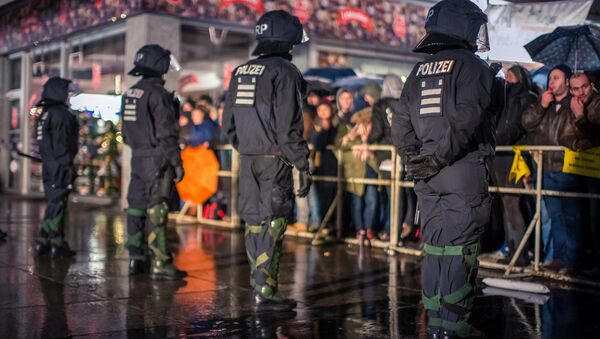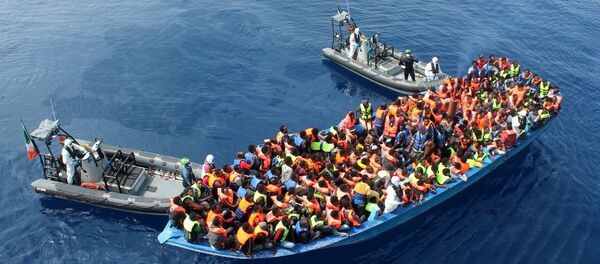There is trouble brewing in the EU. In addition to the ongoing refugee crisis and the increasing threat from Daesh, Europeans have to deal with internal destabilization and the intense polarization of social groups, an independent Poland-based journalist Konrad Stachnio underscores in his article for New Eastern Outlook.
"The European Union and its Member States must prepare for the possibility of a chemical or biological attack on their territory by the self-styled 'Islamic State' in Iraq and the Levant (Daesh)," the European Parliament's December report read.
It is no secret that Islamists have been flooding Europe together with asylum seekers. What makes matters even worse, weapons and drugs are being freely smuggled in the waves of refugees, Stachnio points out citing Udo Ulfkotte, former editor-in-chief of the Frankfurter Allgemeine Zeitung.
"In recent days, I was in the border area of Passau/Deggendorf and later also between Graz and Spielfeld in Austria, near the Slovenian border. At both border crossings there was open transporting of weapons in the direction of Germany and of children destined for abuse. No, that is not being said by conspiracy theorists, but by government security officials on the spot," Ulfkotte writes in his article for Epoch Times, as quoted by Stachnio.
What measures will the EU state members undertake to deal with the problem?
At the same time, according to Norway's new army chief Odin Johannessen, European countries can no longer expect to live in peace and security.
"The Ukraine crisis and terror in Paris shows that Europe can no longer expect to live in peace and security, without having to defend its interests and values," Johannessen said in his speech at the Oslo Military Society, as quoted by Norwegian Dagens Naeringsliv.
But that is not all. The refugee crisis and growing terror threat plays directly into the hands of right-wing groups in Europe.
"In addition to clear signs of destabilization of the EU from the outside, we have to deal with internal destabilization and an increasingly intense polarization of social groups," Stachnio emphasizes.
Indeed, a survey conducted by Populus, one of the UK's leading research and strategy consultancies, exclusively for Sputnik, indicates that the number of German residents who believe that Berlin should shut the borders to refugees is growing.
"At one point while writing this article I had the impression that this is probably what press releases on the eve of World War II looked like. When no one took the threat seriously, at least not yet. I truly hope that this comparison is deeply misguided," Stachnio concludes.




